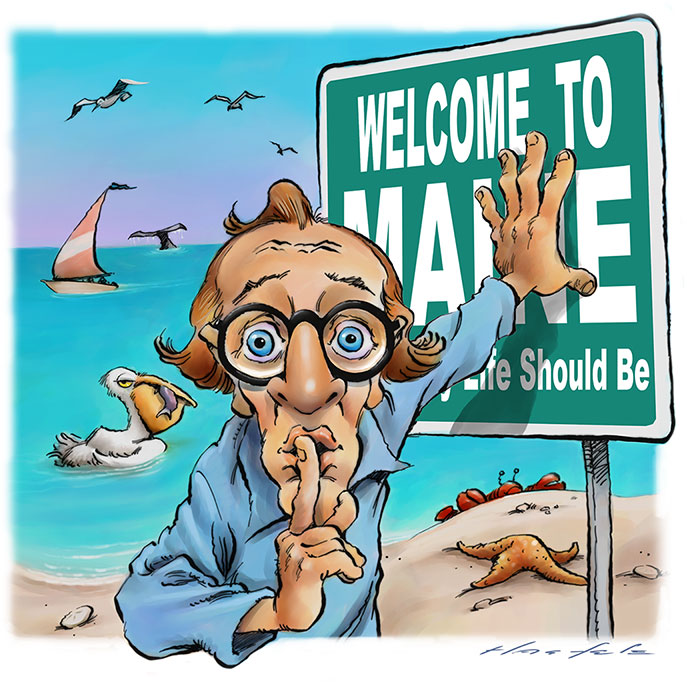When I think of the American frontier I think of the West. That’s reasonable because the United States started on the East Coast and moved westward. It was “Manifest Destiny.” “Go West, young man!” was the clarion call to men in search of opportunity. But Maine was also a frontier, and still is, relatively speaking. It’s the Wild East. Maine was a part of America that hung back behind the westward expansion. In the rush West, it got passed by, as if no one noticed it.

Like most people, I love to see new places. But I also like to return to places, and some I return to over and over. Maine is one of those. Because I have family in Maine I have been visiting for 40 years. I’ve been there at all times of the year, stayed for weeks, months, even a year at a time. But even so, I have barely begun to explore Maine.
Maine became a state in 1820 as part of the Missouri Compromise, a free state to balance the slave state of Missouri. The people of Maine had their own reasons for breaking off from Massachusetts. But although Maine was officially brought into the Union, in many ways it remained off to the side. Maine remains largely untamed. And that’s central to its charm.
This one state is as large as all the other New England states combined. It’s the size of Indiana, or Portugal, and has only 1.3 million residents. That’s about one-sixth the population of New York City. Nearly half of them, 550,000, live in and around the city of Portland. That leaves some big, open country, still remarkably unspoiled. But though Maine is a frontier in a sense, it has a history that is rich and old. A lot of history survives both in the culture and in physical structures, such as lighthouses, churches and homes that harken back to its earliest seafaring days.
When you read that Maine was settled in 1607 by the Plymouth Company, it refers more to a political formality than to its actually being populated. Maine was a remote part of a massive tract of land granted to the colonists by King Charles of Britain. The Plymouth Company was based in the southeastern corner of Massachusetts, 100 miles south of Maine, and 400 miles from the northern end. In the days before any land transportation faster than horses, there wasn’t much traffic between Plymouth and Maine. What there was went by sea. The Plymouth Company did establish a settlement in the summer of 1607 at the mouth of the Kennebuc River in Popham, Maine. But after…
Click Here to Read the Full Original Article at The Taucker Travel Blog…